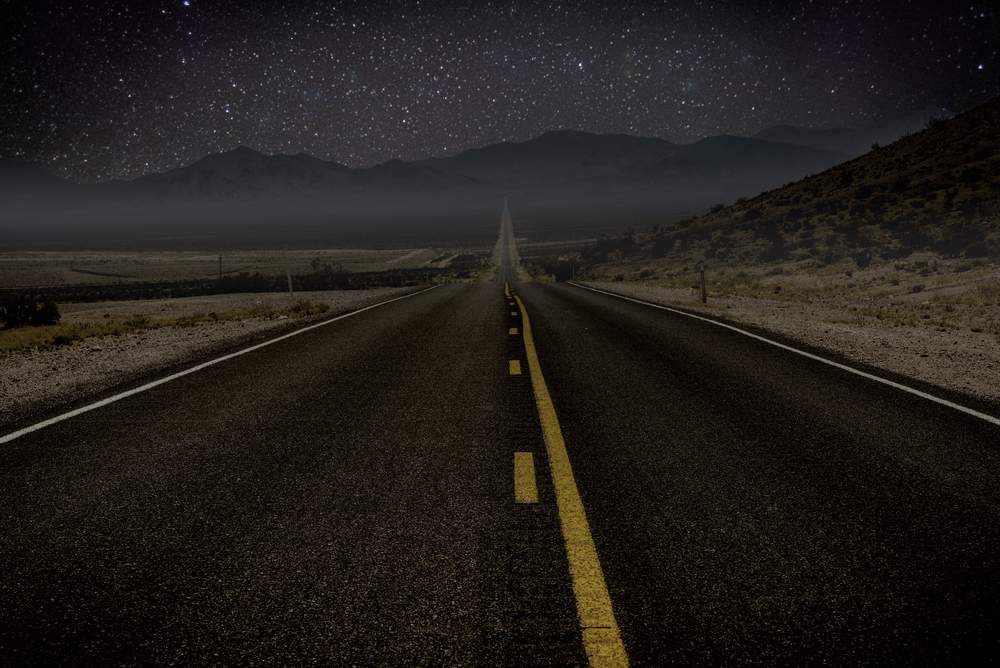It’s not that life at home is hum-drum… quite the contrary. In fact, some of the best adventures happen in our own backyards. But travel changes our perspective, and with it, our expectations of self and others.
The Road and Our Truest Selves
It’s easy to feel like we’re experiencing a truer life, a more vital version of ourselves, the world as it really exists instead of the world we left behind. And perhaps we do.

I have news for you.
The magic isn’t in the travel. It’s in you, and you don’t have to go back to the way things were before, not ever. Even if you return home and stay there.
Of course, we all go back eventually, in the physical sense, to “home.” Maybe we don’t go back to the place of our birth, or the place that we left, but eventually, virtually everyone stops moving forward, creates a stationary life, and builds everyday routines around that existence. Whether or not we actually go back to a version of how we lived before our big trip, or we use our return as an opportunity for progress and reinvention in light of things learned about ourselves and the world while we were traveling is another question entirely.
When we’re traveling, we understand loneliness. We’re forced to work to make connections and build relationships and communities. We actively think about every little decision from where and what to eat to what we carry with us.
We’re acutely aware of our surroundings because they are unfamiliar. We’re actively watching the cultures and societal constructs we find ourselves in because we are, on the most basic level, trying to learn enough to get by and not offend our hosts.
We form connections with other travelers more easily, it seems, than we do with people at home because we share certain values that brought us here, and because there is an instant bond that somehow forms through shared hardship or adventure, and travel is both.
There is an undeniable siren song that the world sings to some of us, a song that draws us away in search of people and experiences beyond our original sphere. The concept of “going back” is one that we grapple with for as long as we travel, and often for the rest of our lives.
“I had to think about it for a moment,” he said, “Until I realized that he meant this little journey we just took because I’ve never stopped traveling… we’re still on our first trip.”
And therein, I think, lies the secret and the answer.
Inherent in the concept of “going back” is the return to one thing in exchange for the other. What if we decided to look at it differently? What if we decided that The Hobbit poet was right when he sang:
“The Road goes ever on and on
Down from the door where it began.
Now far ahead the Road has gone,
And I must follow, if I can,
Pursuing it with eager feet,
Until it joins some larger way
Where many paths and errands meet.
And whither then? I cannot say”
Moving Forward vs. Going Back
Moving forward has everything to do with how we choose to live our inner lives and the core values that we build our character houses upon and little to do with location .

How can we do that?
What does it look like?
What are the core values that we shape through travel that we could be taking home and remaking life with?
These are all questions that beg serious, thoughtful consideration and discussion. There isn’t any one right answer.
For me and mine, at home or away, the core values we live by are:
- Community
- Hospitality
- Generosity, and
- Learning
We’ve had an especially good time experimenting with living those ideals out on the road over the better part of a decade. We actively build community everywhere we go through food and music, an open door policy, and a willingness to listen and give to those around us.
When we’re “back,” it’s the same. Our family mantra of, “Love people, not things,” is one that travels well and snuggles down into a long-term community equally well. For us, we’ve made a conscious choice to be travelers always, even when we aren’t on a RTW trip or traveling, part of that choice is a decision to be home always, even when there isn’t a familiar roof over head.
It’s your choice.
You can choose to go forward.
Take the lessons you’ve learned home with you. Let the values and passions you’ve developed take root in your soul.
Bring the convictions that make you (and sometimes others) uncomfortable but that have pushed you to grow and engage differently with this world home with you.
Let the trinkets that will decorate your house serve as a physical reminder of the souvenirs of the heart that have changed who you are.
And then carry on, traveling through this life, honoring all of your journey instead of setting it aside and picking it apart into sections. Take home what you’ve experienced and what you know, and use it to actively build the life you want to be living.
Don’t go back, go forward. You’re always traveling, even when the scenery doesn’t change much. Your core values can (and should) drive your lifestyle and decisions. They don’t need to be boxed and put on a shelf like an old sweater when the season changes.
If we continue to greet every day as an opportunity to learn and grow and push our boundaries, then the same sense of wonder we had on the road will be in attendance. It’s not about where we are at, in the physical sense, it’s about how we are meeting the world each day. That doesn’t have to change when we go home.
Share your stories of “going back” with us. What was your experience like? What have you learned? Are you still traveling? If not, how has your trip impacted your stationary life?
Want to learn more about long-term travel? Check out the articles below:
Photo credits: shutterstock.com, Phudis Chawakornwarajoti / shutterstock.com, Professional foto / shutterstock.com, Kiwi Innovation